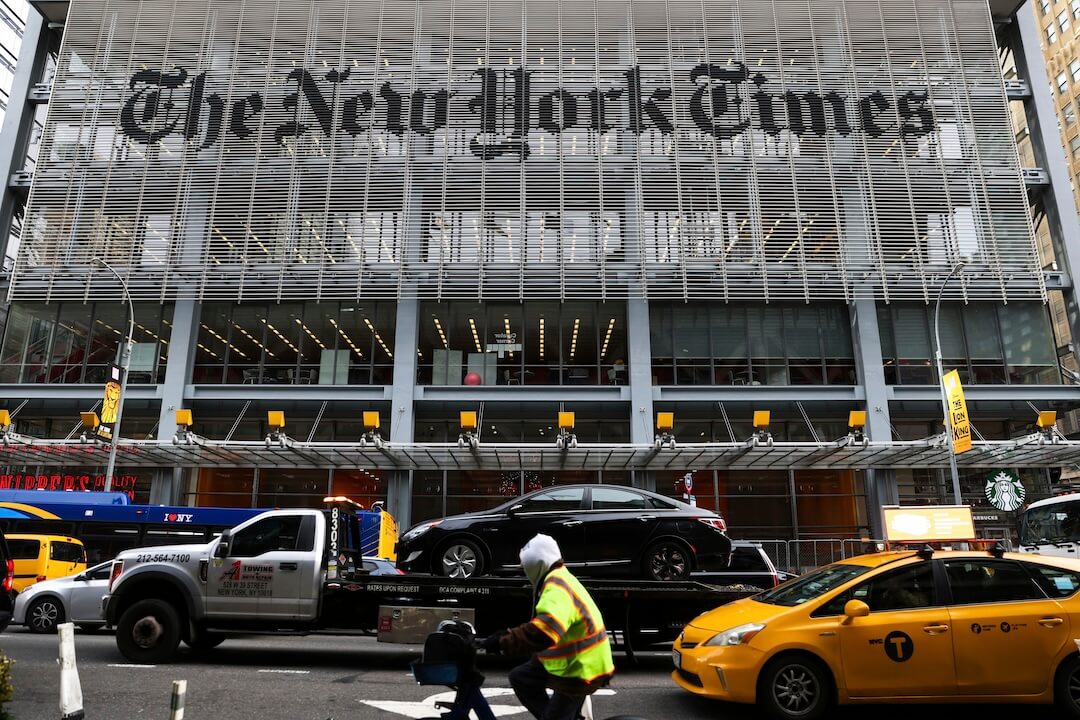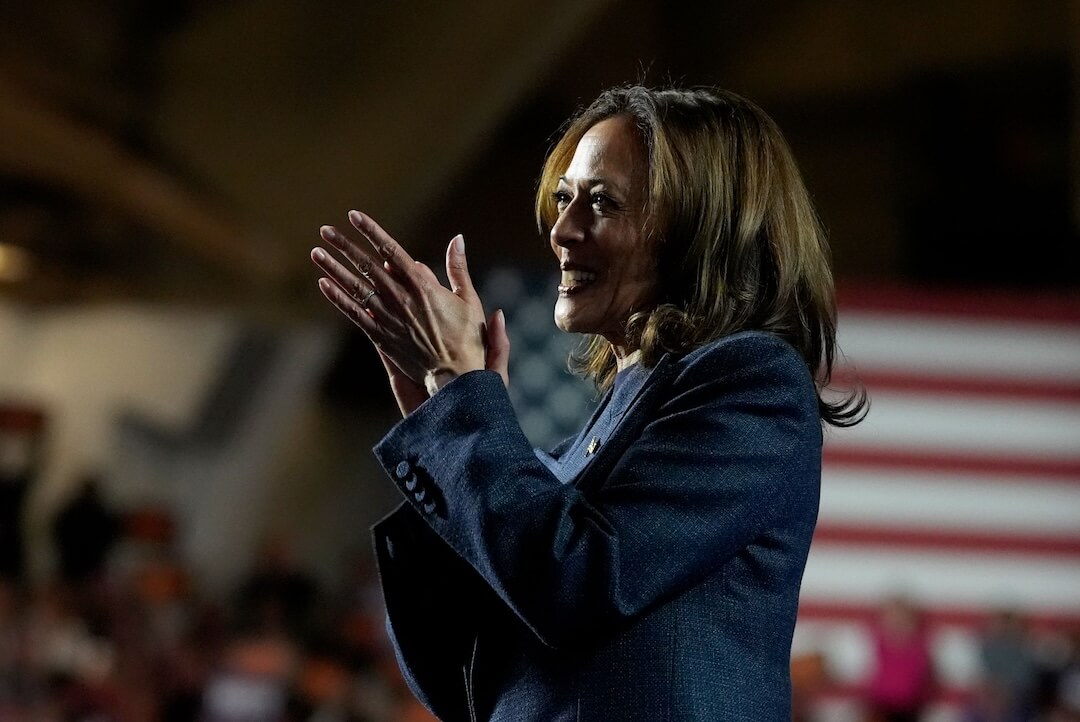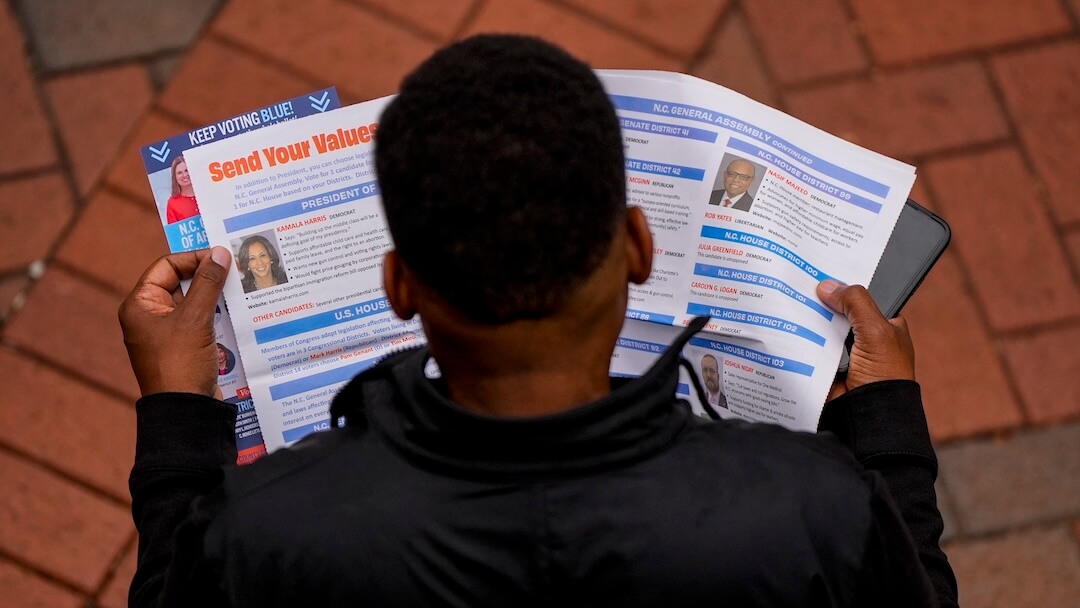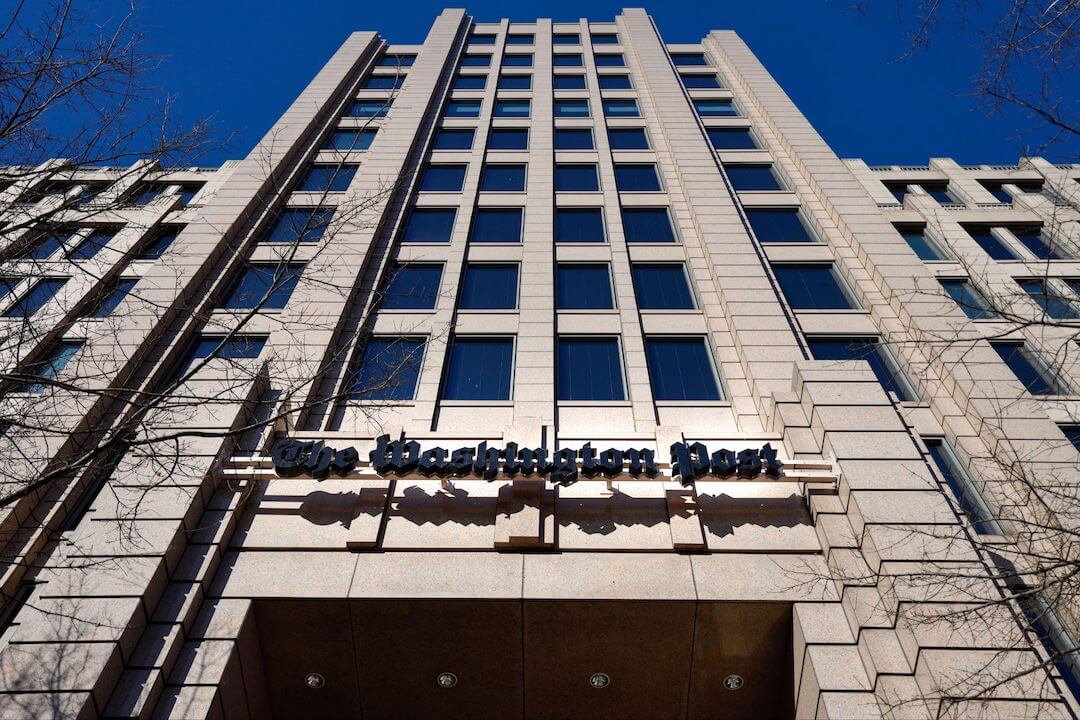The one question I’ve gotten, by far, more than any other since the election is: How will the media cover Donald Trump when he is no longer president?
Actually, that question really asks this question: Should the media cover Donald Trump now that he is no longer president?
He’s no longer president, so he technically has no power, no say-so in any public policy, no authority to govern. Why should the media cover him?
But it would be naive to think he doesn’t have influence over the Republican party. And it also would be irresponsible to think he has disappeared in the minds and hearts of millions of Americans even if he has disappeared from the Oval Office.
Does that matter? Should that matter?
My colleague Kelly McBride wrote about this topic for Poynter and NPR, where she is the public editor. She lists her ground rules for covering Trump.
They include explaining to the audience why Trump might be quoted or covered; no Trump quotes in headlines; and, in what I think is McBride’s strongest point, be wary of coverage instigated by Trump.
McBride writes, “When journalists find themselves considering a story about Trump or his family, consider what instigated the events that seem to merit coverage. Is he getting deposed by an attorney general? Are we learning more actions during his time in office? Or did Trump say something outrageous? The bar should be particularly high for news instigated by Trump himself.”
For now, Trump can only generate his own news if the media covers him. That’s because he’s still banned by major social media outlets, most notably Twitter and Facebook.
His upcoming impeachment trial in the Senate will certainly put his name in the news, as will comparisons of his work and policies to the new president. Otherwise, he might need to make a hole-in-one to get his name in the paper.
Pressing the issue
Think about the White House press secretaries since the start of the Trump administration.
There was Sean Spicer, who got off to a mess of a start on Day One, lying about the attendance at the inauguration. (Kellyanne Conway said he was using “alternative facts.”) Spicer came out of the gate so angry that he was turned into a “Saturday Night Live” skit featuring Melissa McCarthy on a podium that ran into people.
Then there was Sarah Sanders, another confrontational press secretary who started having fewer and fewer press briefings. Then came Stephanie Grisham, who didn’t even bother to have one official White House briefing in her eight months on the job.
Then came Kayleigh McEnany, perhaps the most incompetent White House press secretary ever. She spent more time wagging a finger at the media than doing her job, which was to answer questions about the president’s work, policies and decisions.
So when Jen Psaki held her first press conference as Joe Biden’s White House press secretary on Wednesday, it felt like, as CNN’s Brian Stelter perfectly put it, a “return to normalcy.”
But let’s all be careful, writes Washington Post media columnist Margaret Sullivan.
Sullivan wrote, “The national press — battered by four years of abuse by the president, and by the incompetence and falsehoods of his spokespeople — is in a precarious position. We run the risk of being seduced by an administration that, in many cases, closely reflects our values: multiculturalism, a belief in the principles of liberal democracy, and a kind of wonky idealism. (Cue the ‘West Wing’ theme.)”
But, Sullivan writes, there could be a return to another kind of normal: that journalists, in an effort to show toughness and objectivity, will become more confrontational. The job of the media, of course, is to hold the powerful accountable — especially the highest office in the land.
“But,” Sullivan writes, “there’s a difference between truly holding power to account and grandstanding.”
The press, according to Sullivan, needs to resist false equivalency. They need to call out lies. They need to use plain language, such as racism and white supremacy, instead of euphemisms.
And they need to resist returning to the old journalistic norms.
Psaki, Day Two

White House press secretary Jen Psaki speaks with Dr. Anthony Fauci in the White House briefing room on Thursday. (AP Photo/Alex Brandon)
While we’re on the topic of White House press conferences, new press secretary Jen Psaki held her second press conference on Thursday. She immediately turned it over to Dr. Anthony Fauci, who answered questions about COVID-19, and then she took back over to answer questions about various topics.
It lasted just about an hour and, again, it was respectful, professional and productive. And while Psaki showed her professionalism, it was Fauci’s remarks that confirmed some of the suspicions we had about his public appearances in the Trump administration.
On one question, he said he didn’t know the answer and added, “One of the new things in this administration is if you don’t know the answer, don’t guess.”
And he also took a fair, but not-so-subtle shot at Trump: “It is very clear that there were things that we said, be it regarding things like hydroxychloroquine and other things like that, that really was uncomfortable because they were not based on scientific fact. I can tell you, I take no pleasure at all in being in a situation of contradicting the president. So it was really something that you didn’t feel that you could actually say something and there wouldn’t be any repercussions about it. The idea that you can get up here and talk about what you know, what the evidence (is), what the science is and know that’s it — let the science speak — it is somewhat of a liberating feeling.”
What about the right?
Joe Biden has barely been in office. His first speech called for unity. But it took no time at all for right-wing media — the usual suspects (Fox News, Rush Limbaugh, Newsmax, OAN) — to bash the president. Limbaugh is still going on and on about how the election was rigged. And Fox News’ biggest star, Sean Hannity, went into attack mode on the same day Biden became president.
As CNN’s Oliver Darcy noted, Hannity called Biden “weak” and “cognitively struggling.”
This, according to Washington Post columnist Paul Waldman, is not surprising. He writes, “Every day of this presidency, people in conservative media will be saying that Biden is terrible, his policy ideas are disastrous, and they’re hurtling us toward a hellish socialist dystopia. That will be the case no matter what Biden does or doesn’t do — and Democrats finally get it. What matters is whether their initiatives get passed, and then deliver tangible benefits to people.”
A spectacular night

In this image from video, John Legend performs during the ‘Celebrating America’ event on Wednesday. (Biden Inaugural Committee via AP)
I didn’t get a chance to mention this in Thursday’s newsletter, but the inauguration celebration on Wednesday night was sensational. Hosted by a rather cold-looking Tom Hanks (did he forget his coat?), the celebration featured several musical numbers from locations such as the Lincoln Memorial and Washington Monument.
The highlights were Bruce Springsteen singing “Land of Hopes and Dreams”; Bon Jovi, on a pier in Miami, covering the Beatles’ “Here Comes the Sun”; Demi Lovato and others covering Bill Withers’ classic “Lovely Day”; and John Legend’s jaw-dropping rendition of a song made popular by Nina Simone, “Feeling Good.”
There were also several uplifting songs: Foo Fighters with “Times Like These”; Justin Timberlake and Ant Clemons with “Better Days,” Tim McGraw and Tyler Hubbard of Florida Georgia Line with a new song called “Undivided”; and Broadway stars singing “Seasons of Love” from the show “Rent.” The night was capped off by a spectacular fireworks display to Katy Perry singing (what else?) “Firework.”
In between, Biden gave a speech, as did Kamala Harris — her first as vice president and probably the best speech of the 90-minute show. There also was a segment with former Presidents Bill Clinton, George W. Bush and Barack Obama.
This heavily-produced and virtual event — done that way because of COVID-19 and security concerns — made for a much more entertaining and fast-paced show than your typical inauguration gala and it should set the standard for future inauguration celebrations.
Interview of the day
Two days later and many of us are still moved by the passionate and inspiring poem, “The Hill We Climb,” read by its author, Amanda Gorman, at the Biden inauguration.
CNN’s Anderson Cooper did an excellent interview with Gorman, who told Anderson, “I feel just so overjoyed and so grateful and so humbled. I came here to do the best with the poem that I could. And to see the support that’s been pouring out? I literally can’t absorb it all, so I’ll be processing it for a while.”
The poem was stirring, and Gorman talking about it, her work and the power of words with Cooper is a joy.
Get the papers, get the papers
Bloomberg’s Jennifer Jacobs noted on Twitter that the White House is once again getting subscriptions to The New York Times and The Washington Post. The former resident — that would be President Trump — canceled subscriptions to the papers back in fall 2019.
But bundles of both the Times and Post arrived at the White House on Thursday — Biden’s first full day in office.
For the kids
One of the first things President Biden wants to change as he takes office is foreign policy. But what does that mean, exactly? NBC News chief foreign affairs correspondent Andrea Mitchell asks kids what they think it means and why it’s important for the United States to care about other countries around the world.
It’s all part of NBC News’ commitment to reach kids with the news. Mitchell’s segment on “NBC Nightly News: Kids Edition” airs Saturday mornings on NBC. (Most NBC stations air it at 8:30 a.m. Eastern, but check local listings.)
In an email, Mitchell told me, “I love the ‘Nightly News: Kids Edition’ and was so excited to talk to these fifth and sixth graders about my passion, foreign policy. They had really spent time thinking about the importance of making friends with other countries, not picking fights, and helping kids in poorer places that need our help. It struck me as exactly what we hope our government should want to do.”
Striking a tone
The New Yorker’s union employees had a one-day strike on Thursday. The New York Times’ Katie Robertson reports that “more than 100 employees represented by The New Yorker Union, which includes fact checkers, web producers and some other editorial employees, decided on the daylong walkout after recent rounds of negotiations with management failed, said Natalie Meade, the union chair.”
Robertson reports that pay is the issue. The union wants to raise the minimum salary to $65,000 and that number was not agreed upon in the latest round of negotiations. Meade told Robertson that The New Yorker’s wage increase offer was “insulting,” adding, “They already know they’re underpaying us.”
The union’s walkout was expected to last 24 hours.
A New Yorker spokesperson told Robertson in a statement, “It is our hope that, as opposed to resorting to actions like this one, the union will bargain in good faith and return a counter proposal, as is standard in negotiations. That way, we can work together productively to reach a final contract as quickly as possible.”
Check it out
I wanted to point out work by a few of my Poynter colleagues that you should definitely check out.
- Kristen Hare talks with several reporters with very personal stories for “How Journalists in D.C. Made a National Story Local.”
- Wordmaster Roy Peter Clark with “What We Can Learn from the Language of President Biden’s Inauguration.”
- Amaris Castillo with “As Trump Leaves DC, The Palm Beach Post Prepares to Ramp Up Coverage.”
- Doris Truong with “Inauguration Day Front Pages Had a Chance to Break Ground. Most Didn’t.”
Nobel Prize nomination
Speaking of Poynter, the International Fact-Checking Network at the Poynter Institute has been nominated for the Nobel Peace Prize. The announcement was made by Norwegian lawmaker from the Venstre party and former Minister of Culture and Education Trine Skei Grande.
IFCN director Baybars Örsek wrote, “While we recognize that this nomination is a long way from being shortlisted for this unparalleled award, we see it as an important validation of the work of fact-checkers worldwide. Simply put: facts matter and fact-checking can save lives.”
The ratings game
CNN was the big TV winner for inauguration coverage. CNN averaged 7.73 million viewers between 11 a.m. and 4 p.m. Eastern. CNN was followed by ABC (5.37 million), MSNBC (5.32 million), NBC (4.71 million), CBS (4.13 million) and Fox News (2.66 million).
One can’t help but notice Fox News’ not-that-surprising numbers for the inauguration. New York Times media writer Michael M. Grynbaum noted that viewership on Fox News for Biden’s inauguration speech was 77% lower than it was for Trump’s inaugural speech in 2017.
Hot type
- CNN’s Donie O’Sullivan talks to a Trump supporter who believed the QAnon conspiracies about the election. Informative and disturbing.
- Writing for Mother Jones, Tim Murphy profiles Sen. Josh Hawley in “The Apprentice.”
- The Washington Post global opinions editor Karen Attiah with “The Media Had a Role to Play in the Rise of Trump. It’s Time to Hold Ourselves Accountable.”
Have feedback or a tip? Email Poynter senior media writer Tom Jones at tjones@poynter.org.
More resources for journalists
- Covering COVID-19 with Al Tompkins (daily briefing). — Poynter
- Power Up Leadership in Tough Times (Winter 2021) (Seminar) — Apply today! Deadline: Jan. 18
- Write Your Heart Out: The Craft of the Personal Essay (Seminar) — Jan. 25-Feb. 19
- Time for a new job? Your future employer is looking for you on The Media Job Board — Powered by Poynter and Editor & Publisher. Search now
The Poynter Report is our daily media newsletter. To have it delivered to your inbox Monday-Friday, sign up here.







